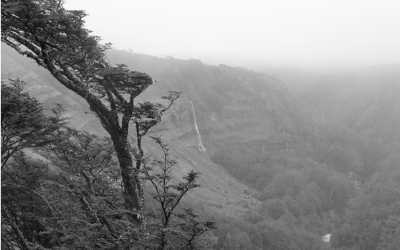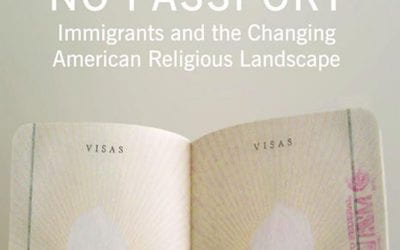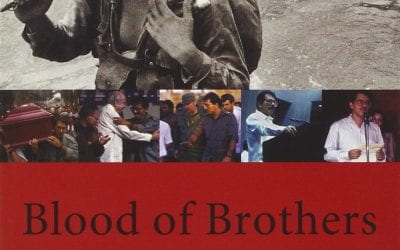Stretching in January
The Puerto Rico Summer Institute
The Puerto Rico Winter Institute is a major January “happening” at the David Rockefeller Center for Latin American Studies. For the past four years, students from Harvard and the University of Puerto Rico have enjoyed more than the sunshine, warmth, beauty, and good food of Puerto Rico. They have collaborated in intensive intellectual “stretches” across disciplines, cultures, and time.
Conceptualized by Doris Sommer, a professor in Romance Languages and Literatures, the Institute (PRWI) is an experiment in appreciating the rich academic and cultural life of Puerto Rico and expanding interactions among students and faculty who share research and teaching interests. As Sommer explains in her description of the Aula Verde, the “real” world is never far away from the Institute experience.
I’ve had the privilege of sharing some of that “real” world experience in PRWI activities for the past two years—and I have indeed been stretched! In the summer of 2006, I joined discussions about the connection between water, the environment, and plant life in Puerto Rico. Organized by Noel Michele Holbrook, professor in Harvard’s Department of Organismic and Evolutionary Biology, daily lectures were held at Puerto Rico’s Escuela de Artes Plásticas; lectures were made real through study visits to rain forests, watershed sites, mangroves, and the bioluminescent bays of the island of Vieques. The stretch resulted from bringing together plant biologists, hydrologists, and human rights activists (among others) to consider the meaning of water for plant and human life.
This kind of interaction has been made possible through generous support from the Wilbur Marvin Foundation. The Winter Institute is a groundbreaking way to promote collaboration between universities, their students, and their faculty.
I again got a chance to witness these collaborations this past winter when I attended lectures and participated in field activities related to the fascinating topic of how the brain and human emotions interact in interpersonal communication, whether it is through speech, gesture, or artistic expression. Students and I puzzled over the art and science of “empathic translation” in music, art, poetry, law, and neuroscience and considered how our insights could be applied to cross-cultural communications and artistic expression. The experience, organized by Alice Flaherty, a professor of neurobiology at Harvard Medical School, was an intriguing intellectual stretch for me, made all the more rewarding through sharing it with students and faculty engaged in their own intellectual reaching.
At this point, I can only regret that I was not part of the first two stretches. In 2005, “Culture at a Crossroads,” organized by Sommer, was an intellectual journey that considered architecture, literature, identity, and religion. The following year, the Institute was organized around the theme of public health and society, and was led by Harvard Medical School professor Arachu Castro, who focused attention on Caribbean and U.S. connections, particularly with relevance to AIDS, immigration, and the health status of U.S. Latinos.
The Puerto Rico Winter Institute has been extraordinarily successful in helping both students and faculty stretch their minds beyond the normal boundaries of academic disciplines and cultural understandings. It has also resulted in increased networking and collaboration among scholars in Puerto Rico and Harvard. The sunshine, the warmth, the landscape are wonderful; so is the intellectual exercise.
Spring 2008, Volume VII, Number 3
Merilee S. Grindle is the director of the David Rockefeller Center for Latin American Studies and Edward S. Mason Professor of International Development at the Kennedy School of Government at Harvard University.
Related Articles
Editor’s Letter: Puerto Rico
Long, long ago before I ever saw the skyscrapers of Caracas, long before I ever fished for cachama in Barinas with Pedro and Aída, long before I ever dreamed of ReVista, let alone an issue on Venezuela, I heard a song.
God Needs No Passport
For a practicing Buddhist, my first Mass attendance at St. Ambrose two years ago was a memorable event. I had spent the earlier part of the day visiting…
Blood of Brothers: Life and War in Nicaragua
Stephen Kinzer, New York Times Bureau Chief in Nicaragua for most of the war years, pauses in his compelling account of the war and its politics to explain the Socratic method needed to give…




